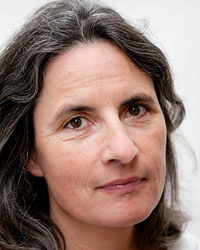Dominique Soldati-Favre Group

Project at a glance
Molecular and cellular biology of apicomplexan parasites
Members of the phylum of Apicomplexa are obligate intracellular parasites of enormous medical and veterinary significance, being responsible for a wide variety of diseases in human and animals, including malaria, toxoplasmosis, cryptosporidiosis and coccidiosis. Motion is an intrinsic property of all living organisms and as obligate intracellular, apicomplexan parasites actively cross biological barriers, penetrate host cells and egress by using a unique and conserved mode of gliding motility. Toxoplasma is an attractive model system due to its ease of experimental use, excellent tools for cellular and even biochemical studies, and well-developed genetic systems and because the gliding mechanism is very conserved, the major findings hold true for other members of the Apicomplexa phylum including Plasmodium species responsible for malaria.
To decipher the mechanism of gliding motility, host cell attachment and invasion at the molecular level, we have invested the past years in the identification and characterization of molecular motors, adhesins and proteases as invasion factors. Our aim is to elucidate how structural proteins support cellular movement and how cytoskeletal dynamics and motor proteins are harnessed to generate movement in a coordinated temporal and spatial fashion. We are investigating the impact of posttranslational modifications, phophorylation and plamitoylation, in controlling the gliding machinery.
The detailed dissection of the biochemical properties and the function of the parasite adhesins shall help us to elucidate how T. gondii accommodates for the broad host range specificity and what is the nature of the host cell receptors involved in attachment and invasion. Parasite proteases have implicated in the cleavage of adhesins during invasion and the functional significance of this event is currently under investigation.

